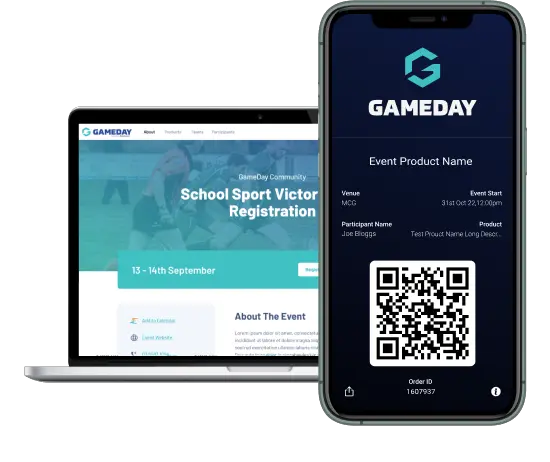Child Protection Policy
Doncaster Basketball Association
Statement of Commitment to Child Protection
Our association is committed to child safety.
We want children to be safe, happy and empowered. We support and respect all children, as well as our staff and volunteers.
We are committed to the safety, participation and empowerment of all children.
We have zero tolerance of child abuse, and all allegations and safety concerns will be treated very seriously and consistently with our robust policies and procedures.
We have legal and moral obligations to contact authorities when we are worried about a child’s safety, which we follow rigorously.
Our association is committed to preventing child abuse and identifying risks early, and removing and reducing these risks.
Our association has robust human resources and recruitment practices for all staff and volunteers.
Our association is committed to regularly training and educating our staff and volunteers on child abuse risks.
We are committed to the cultural safety of Aboriginal children, the cultural safety of children from culturally and/or linguistically diverse backgrounds, and to providing a safe environment for children with a disability.
We have specific policies, procedures and training in place that support our leadership team, staff and volunteers to achieve these commitments.
Our Children
This policy is intended to empower children who are vital and active participants in our association. We involve them when making decisions, especially about matters that directly affect them. We listen to their views and respect what they have to say.
We promote diversity and tolerance in our association, and people from all walks of life and cultural backgrounds are welcome. In particular we:
- promote the cultural safety, participation and empowerment of Aboriginal children
- promote the cultural safety, participation and empowerment of children from culturally and/or linguistically diverse backgrounds
- ensure that children with a disability are safe and can participate equally.
Child Protection Policy
1) Introduction
Everyone who participates in our association’s activitiesis entitled to do so in an enjoyable and safe environment. Doncaster Basketball Association has a moral and legal obligation to ensure that, when given responsibility for young people, coaches, officials, volunteers, staff members and parents provide them with the highest possible standard of care.
Doncaster Basketball Association is committed to devising and implementing policies so that everyone in sport accepts their responsibilities to safeguard children from harm and abuse. This means to follow procedures to protect children and report any concerns about their welfare to appropriate authorities.
The aim of the policy is to promote good practice, provide children and young people with appropriate safety/protection whilst in the care of Doncaster Basketball Association and to allow staff and volunteers to make informed and confident responses to specific child protection issues.
Child:
The words ‘child’ and ‘children’ in this guide refer to children and young people up to the age of 18years.
This definition is consistent with the national framework, Creating Safe Environments for Children – Organisations, Employees and Volunteers, the Commission for Children and Young People Act, the Child Wellbeing and Safety Act 2005 and the Children, Youth and Families Act 2005.
The term ‘child’ in this guide is inclusive of anyone under 18 years of age. Not utilising the term ‘young people’ is not intended to diminish any emphasis on, or acknowledgement of, the safety risks to older children or teenagers.
1.1) Policy Statement
Basketball Victoria is committed to the following:
- the welfare of the child is paramount
- all children, whatever their age, culture, ability, gender, language, racial origin, religious belief and/or sexual identity should be able to participate in basketball in a fun and safe environment
- taking all reasonable steps to protect children from harm, discrimination and degrading treatment and to respect their rights, wishes and feelings
- all suspicions and allegations of poor practice or abuse will be taken seriously and responded to swiftly and appropriately
- all Doncaster Basketball Association employees who work with children will be recruited with regard to their suitability for that responsibility, and will be provided with guidance and/or training in good practice and child protection procedures
- working in partnership with parents and children is essential for the protection of children
2) Promoting Good Practice
To provide children with the best possible experience and opportunities in basketball everyone must operate within an accepted ethical framework such as The Codes of Conduct.
It is not always easy to distinguish poor practice from abuse. It is therefore NOT the responsibility of employees or participants in basketball to make judgements about whether or not abuse is taking place. It is, however, their responsibility to identify poor practice and possible abuse and act if they have concerns about the welfare of the child.
Please read the attachment below to help you identify good practice and poor practice.
3) Children’s Rights to Safety and Participation
Doncaster Basketball Association is committed to the safety and wellbeing of all children accessing our service. We support the rights of the child and will act without hesitation to ensure a child safe environment is maintained at all times.
Doncaster Basketball Association also promotes the involvement and participation of children and young people in developing and maintaining child-safe environments.
We involve them when making decisions, especially about matters that directly affect them. We listen to their views and respect what they have to say.
We promote diversity and tolerance in our association, and people from all walks of life and cultural backgrounds are welcome. In particular we:
- promote the cultural safety, participation and empowerment of Aboriginal children
- promote the cultural safety, participation and empowerment of children from culturally and/or linguistically diverse backgrounds
- ensure that children with a disability are safe and can participate equally.
4) Identify and Analyse Risk of Harm
Doncaster Basketball Association will develop and implement a risk management strategy, which includes a review of existing child protection practices, to determine how child-safe and child-friendly the organisation is and to determine what additional strategies are required to minimise and prevent risk of harm to children because of the action of an employee, volunteer, official, parent, player or another person.
5) Ensure that Adults and Children Adhere to the Codes of Conduct
Doncaster Basketball Association will ensure that all adults are aware of and adhere to the organisation’s Codes of Conduct that specify standards of conduct and care when dealing and interacting with children, particularly those in the organisation’s care. The organisation will also implement a code of conduct to address appropriate behaviour between children.
All staff and volunteers, as well as children and their families, are given the opportunity to contribute to the development of the Codes of Conduct.
6) Training and Supervision
Training and education is important to ensure that everyone in our organisation understands that child safety is everyone’s responsibility.
Our organisational culture aims for all staff and volunteers (in addition to parents/carers and children) to feel confident and comfortable in discussing any allegations of child abuse or child safety concerns. We train our staff and volunteers to identify, assess, and minimise risks of child abuse and to detect potential signs of child abuse.
We also support our staff and volunteers through ongoing supervision to develop their skills to protect children from abuse; and promote the cultural safety of Aboriginal children, the cultural safety of children from linguistically and/or diverse backgrounds, and the safety of children with a disability.
New employees and volunteers will be supervised regularly to ensure they understand our organisation’s commitment to child safety and that everyone has a role to play in protecting children from abuse, as well as checking that their behaviour towards children is safe and appropriate (please refer to this organisation’s code of conduct to understand appropriate behaviour further). Any inappropriate behaviour will be reported through appropriate channels, including the Department of Health and Human Services and Victoria Police, depending on the severity and urgency of the matter.
7) Association Welfare Officer
It is not the responsibility of anyone working for Doncaster Basketball Association in a paid or unpaid capacity to decide whether or not child abuse has taken place. However, there is a responsibility to act on any concerns through contact with the appropriate authorities so that they can then make inquiries and take necessary action to protect the young person. This applies BOTH to allegations/suspicions of abuse occurring within our organisation’s activities and to allegations/suspicions that abuse is taking place elsewhere.
Doncaster Basketball Association will ensure that an Association Welfare Officer is appointed to look over matters concerning child safety and abuse. We expect our members and staff to discuss any concerns that they may have about the welfare of a child IMMEDIATELY with the nominated Association welfare officer. The Association welfare officer will ensure that the concerns/incident reported to him remain confidential and that the identity of the person reporting the concern/incident is not revealed.
The Association welfare officer will be required to report all the incidents noted by him to the appropriate authority at Basketball Victoria who will then ascertain whether or not the person/s involved in the incident play a role in the organisation and act accordingly.
8) Screening and Recruitment
Doncaster Basketball Association ensures that all reasonable steps are taken in order to engage the most suitable and appropriate people to work with children. This is achieved using a range of screening measures. Such measures help us minimise the likelihood of engaging (or retaining) people who are unsuitable to work with children.
We develop selection criteria and advertisements which clearly demonstrate our commitment to child safety and an awareness of our social and legislative responsibilities. Our organisation understands that when recruiting staff and volunteers, we have ethical as well as legislative obligations.
We actively encourage applications from Aboriginal peoples, people from culturally and/or linguistically diverse backgrounds and people with a disability.
All people engaged in child-related work, including volunteers, are required to hold a Working with Children Check and to provide evidence of this Check. Please see the Working with Children Check website <www.workingwithchildren.vic.gov.au> for further information.
Please read the attached document which states the screening processes followed by our organisation.
9) Interview, Induction and Training for Personnel
Interview and Induction
All employees and volunteers will be required to undertake an interview carriedout to acceptable protocol and recommendations. All employees and volunteers will receive formal or informal induction during which:
- A check will be made that the application form has been completed in full, including sections on criminal records and self disclosures
- Their qualifications will be substantiated
- The job requirements and responsibilities will be clarified
- They will sign up to the organisation’s Codes of Conduct and the Member Protection Declaration
- Child Protection Procedures will be explained and training needs will be identified e.g. basic child protection awareness
Training
In addition to pre-selection checks, the safeguarding process includes training after recruitment to help staff and volunteers to:
- Analyse their own practice against what is deemed good practice, and to ensure their practice is likely to protect them from false allegations
- Recognise their responsibilities and report any concerns about suspected poor practice and/or abuse
- Respond to concerns expressed by a child
- Work safely and effectively with children
10) Fair and Just Procedures for Personnel
The safety and wellbeing of children is our primary concern. We are also fair and just to personnel. The decisions we make when recruiting, assessing incidents, and undertaking disciplinary action will always be thorough, transparent, and based on evidence.
We record all allegations of abuse and safety concerns, including investigation updates. All records are securely stored.
If an allegation of abuse or a safety concern is raised, we provide updates to children and families on progress and any actions we as an organisation take.
11) Privacy
All personal information considered or recorded will respect the privacy of the individuals involved, whether they be staff, volunteers, officials, parents or children, unless there is a risk to someone’s safety. We have safeguards and practices in place to ensure any personal information is protected. Everyone is entitled to know how this information is recorded, what will be done with it, and who will have access to it.
12) Legislative Responsibilities
Our association takes our legal responsibilities seriously, including:
- Failure to disclose: Reporting child sexual abuse is a community-wide responsibility. All adults in Victoria who have a reasonable belief that an adult has committed a sexual offence against a child under 16 have an obligation to report that information to the police.[1]
- Failure to protect: People of authority in our organisation will commit an offence if they know of a substantial risk of child sexual abuse and have the power or responsibility to reduce or remove the risk, but negligently fail to do so.[2]
- Any personnel who are mandatory reporters must comply with their duties.[3]
13) Risk Management
In Victoria, organisations are required to protect children when a risk is identified (see information about failure to protect above). In addition to general occupational health and safety risks, we proactively manage risks of abuse to our children.
14) Regular Review
This policy will be reviewed every two years and following significant incidents if they occur. We will ensure that families and children have the opportunity to contribute. Where possible we do our best to work with local Aboriginal communities, culturally and/or linguistically diverse communities and people with a disability.
15) Allegations, Concerns and Complaints
Our organisation takes all allegations seriously and has practices in place to investigate thoroughly and quickly. Our staff and volunteers are trained to deal appropriately with allegations.
We work to ensure all children, families, staff and volunteers know what to do and who to tell if they observe abuse or are a victim, and if they notice inappropriate behaviour.
We all have a responsibility to report an allegation of abuse if we have a reasonable belief that an incident took place (see information about failure to disclose above).
If an adult has a reasonable belief that an incident has occurred then they must report the incident. Factors contributing to reasonable belief may be:
- a child states they or someone they know has been abused (noting that sometimes the child may in fact be referring to themselves)
- behaviour consistent with that of an abuse victim is observed[4]
- someone else has raised a suspicion of abuse but is unwilling to report it
- observing suspicious behaviour.
SCREENING REQUIREMENTS
As required by the Basketball Victoria Member Protection By-Laws, this attachment sets out the screening process for people in our association who work, coach, supervise or have regular unsupervised contact with people under the age of 18 years.
Our association will:
1) Identify positions that involve working, coaching, supervising or regular unsupervised contact with people under the age of 18 years.
2) Obtain a completed Member Protection Declaration (MPD) from all people who are identified in the above step and keep it in a secure place.
3) Provide an opportunity for a person to give an explanation if a MPD isn’t provided or it reveals that the person doesn’t satisfactorily meet any of the clauses in the MPD. We will then make an assessment as to whether the person may be unsuitable to work with people under the age of 18 years. If unsatisfied we will not appoint them to the role/position.
4) Where possible, check a person’s referees (verbal or written) about his/her suitability for the role.
5) Make sure that the person being interviewed/screened has a valid Working with Children Check (WWC) issued by the Victorian government. Our organisation recognises two (2) exceptions to the Working with Children Check – police officers and teachers. These personnel will not be required to have a Victorian WWC for the positions identified in Step 1.
PROMOTING GOOD PRACTICE
This attachment will help you identify what is meant by good practice and poor practice.
Good Practice
All personnel should adhere to the following principles and actions:
- always work in an open environment (e.g. avoiding private or unobserved situations and encouraging open communication with no secrets)
- make the experience of basketball fun and enjoyable: promote fairness, confront and deal with bullying
- treat all children, including Aboriginal children, children from culturally and/or linguistically diverse backgrounds and children with a disability equally and with respect and dignity
- always put the welfare of the child first, before winning
- maintain a safe and appropriate distance with players (e.g. it is not appropriate for staff or volunteers to have an intimate relationship with a child or to share a room with them)
- avoid unnecessary physical contact with children. Where any form of manual/physical support is required it should be provided openly and with the consent of the child. Physical contact can be appropriate so long as it is neither intrusive nor disturbing and the child’s consent has been given
- involve parents/carers wherever possible, e.g. where children need to be supervised in changing rooms, encourage parents to take responsibility for their own child. If groups have to be supervised in changing rooms always ensure parents, coaches, etc. work in pairs
- request written parental consent if Association officials are required to transport children in their cars
- gain written parental consent for any significant travel arrangements e.g. overnight stays
- ensure that if mixed teams are taken away, they should always be accompanied by a male and female member of staff
- ensure that at away events adults should not enter a child’s room or invite young people to their rooms
- be an excellent role model; this includes not smoking or drinking alcohol in the company of children
- always give enthusiastic and constructive feedback rather than negative criticism
- recognising the developmental needs and capacity of the children and do not risk sacrificing welfare in a desire for Association or personal achievements. This means avoiding excessive training or competition and not pushing them against their will
- secure written parental consent for the Association to act in loco parentis, to give permission for the administration of emergency first aid or other medical treatment if the need arises
- keep a written record of any injury that occurs, along with details of any treatment given
Poor Practice
The following are regarded as poor practice and should be avoided by all personnel:
- unnecessarily spending excessive amounts of time alone with children away from others
- taking children alone in a car on journeys, however short
- taking children to your home where they will be alone with you
- sharing a room with a child
- engaging in rough, physical or sexually provocative games, including horseplay
- allowing or engaging in inappropriate touching of any form
- engaging with children on social media platforms
- taking unauthorised photographs of children (please read the attached document on precautions to be taken while photographing/filming children)
- allowing children to use inappropriate language unchallenged
- making sexually suggestive comments to a child, even in fun
- reducing a child to tears as a form of control
- allowing allegations made by a child to go unchallenged, unrecorded or not acted upon
- doing things of a personal nature that the children can do for themselves.
When a case arises where it is impractical/impossible to avoid certain situation e.g. transporting a child in your car, the tasks should only be carried out with the full understanding and consent of the parent/care and the child involved.
If during your care you accidentally hurt a child, the child seems distressed in any manner, appears to be sexually aroused by your actions and/or if the child misunderstands or misinterprets something you have done, report any such incidents as soon as possible to another colleague and make a written note of it. Parents should also be informed of the incident.
PROCEDURES FOR RESPONDING TO SUSPICONS AND ALLEGATIONS
It is not the responsibility of anyone working for our association in a paid or unpaid capacity to decide whether or not child abuse has taken place. However, there is a responsibility to act on any concerns through contact with the appropriate authorities so that they can then make inquiries and take necessary action to protect the child. This applies BOTH to allegations/suspicions of abuse occurring within our association’s activities and to allegations/suspicions that abuse is taking place elsewhere.
This attachment explains how to respond to allegations/suspicions.
NOTE: Please also read the Victoria State Government’s Education and Training website < http://www.education.vic.gov.au/school/principals/spag/safety/Pages/childprotection.aspx> for further information on child protection reporting obligations. This website will provide you with information on the concerned authorities to be contacted when child abuse has taken place and the procedures to be followed for making a report of child abuse to the concerned authorities.
Receiving Evidence of Possible Abuse
We may become aware of possible abuse in various ways. We may see it happening, we may suspect it happening because of signs such as those listed above or it may be reported to us by someone else or directly by the child affected.
In the last of these cases, it is particularly important to respond appropriately. If a child says or indicates that he/she is being abused, you should:
- stay calm so as not to frighten the young person.
- reassure the child that he/she is not to blame and that it was right to tell.
- listen to the child, showing that you are taking him/her seriously.
- keep questions to a minimum so that there is a clear and accurate understanding of what has been said. The law is very strict and child abuse cases have been dismissed where it is felt that the child has been led or words and ideas have been suggested during questioning. Only ask questions to clarify.
- inform the child that you have to inform other people about what he/she has told you. Tell the child this is to help stop the abuse from continuing.
- safety of the child is paramount. If the child needs urgent medical attention call an ambulance, inform the doctors of the concern and ensure they are made aware that this is a child protection issue.
- record all information.
- report the incident to the association’s welfare officer.
Recording Information
To ensure that information is as helpful as possible, a detailed record should always be made at the time of the disclosure/concern. In recording you should confine yourself to the facts and distinguish what is your personal knowledge and what others have told you. Do not include your own opinions.
Information should include the following:
- the child’s name, age and date of birth
- the child’s home address and telephone number
- whether or not the person making the report is expressing his/her concern or someone else’s
- the nature of the allegation, including dates, times and any other relevant information
- a description of any visible bruising or injury, location, size etc. Also any indirect signs, such as behavioural changes
- details of witnesses to the incident
- the child’s account, if it can be given, of what has happened and how any bruising/injuries occurred
- have the parents been contacted?If so what has been said?
- has anyone else been consulted? If so record details
- has anyone been alleged to be the abuser? Record details.
Reporting a Concern
All suspicions and allegations MUST be reported appropriately. It is recognised that strong emotions can be aroused particularly in cases where sexual abuse is suspected or where there is misplaced loyalty to a colleague. It is important to understand these feelings but not allow them to interfere with your judgement about any action to take.
Doncaster Basketball Association expects its members and staff to discuss any concerns they may have about the welfare of a child IMMEDIATELY with the person in charge and subsequently to check that appropriate action has been taken.
If the nominated Association welfare officer is not available you should take responsibility and seek advice from the duty officer at your local social services department or the police. Telephone numbers can be found in your local directory.
Where there is a complaint against an employee or volunteer, there may be three types of investigation.
- Criminal in which case the police are immediately involved
- Child Protection in which case the social services (and possibly) the police will be involved
- Disciplinary or Misconduct in which case Basketball Victoria will be involved
As mentioned previously in this document, Doncaster Basketball Association’s employees and volunteers are not child protection experts and it is not their responsibility to determine whether or not abuse has taken place. All suspicions and allegations must be shared with professional agencies that are responsible for child protection.
Social services have a legal responsibility under The Children Act 1989 to investigate all child protection referrals by talking to the child and family (where appropriate), gathering information from other people who know the child and making inquiries jointly with the police.
NB: If there is any doubt, you must report the incident: it may be just one of a series of other incidences which together cause concern
Any suspicion that a child has been abused by an employee or a volunteer should be reported to Doncaster Basketball Association who will take appropriate steps to ensure the safety of the child in question and any other child who may be at risk. This will include the following:
- we will refer the matter to social services department
- the parent/carer of the child will be contacted as soon as possible following advice from the social services department
- the chair person of our organisation will be notified to decide who will deal with any media inquiries and implement any immediate disciplinary proceedings
- if the Association welfare officer is the subject of the suspicion/allegation, the report will be made to the appropriate manager who will refer the matter to social services
Allegations of abuse are sometimes made sometime after the event. Where such an allegation is made, you should follow the same procedures and have the matter reported to social services. This is because other children in the sport or outside it may be at risk from the alleged abuser. Anyone who has a previous conviction for offences related to abuse against children is automatically excluded from working with children.
Concerns Outside the Immediate Sporting Environment (e.g. parent or carer)
- Report your concerns to the welfare officer.
- If the welfare officer is not available, the person being told or discovering the abuse should contact their local social services department or the police immediately.
- Social Services and the welfare officer will decide how to inform the parents/carers.
- The welfare officer should also report the incident to Basketball Victoria. We will ascertain whether or not the person/s involved in the incident play a role in the organisation and act accordingly.
- Maintain confidentiality on a need to know basis.
Precautions to be Taken While Photographing Children
When photographing or filming a child or using children’s images for work-related purposes, one must:
- assess and endeavour to comply with local traditions or restrictions for reproducing personal images before photographing or filming a child.
- obtain informed consent from the child and parent or guardian of the child before photographing or filming a child. As part of this one must explain how the photograph or film will be used.
- ensure photographs, films, videos and DVDs present children in a dignified and respectful manner and not in a vulnerable or submissive manner. Children should be adequately clothed and not in poses that could be seen as sexually suggestive.
- ensure images are honest representations of the context and the facts.
- ensure file labels, meta data or text descriptions do not reveal identifying information about a child when sending images electronically or publishing images in any form.
- understand that the onus is on him/her to use common sense and avoid actions or behaviours that could be construed as child exploitation and abuse.
[1] A person will not commit this offence if they have a reasonable excuse for not disclosing the information, including a fear for their safety or where the information has already been disclosed.
Further information about the failure to disclose offence is available on the Department of Justice and Regulation website <www.justice.vic.gov.au/home/safer+communities/protecting+children+and+families/failure+to+disclose+offence>.
[2] Further information about the failure to protect offence is available on the Department of Justice and Regulation website <www.justice.vic.gov.au/home/safer+communities/protecting+children+and+families/failure+to+protect+offence>.
[3] Mandatory reporters (doctors, nurses, midwives, teachers (including early childhood teachers), principals and police) must report to child protection if they believe on reasonable grounds that a child is in need of protection from physical injury or sexual abuse.
See the Department of Health and Human Services website for information about how to make a report to child protection<www.dhs.vic.gov.au/about-the-department/documents-and-resources/reports-publications/guide-to-making-a-report-to-child-protection-or-child-first>.
[4] For example of behaviour, please see An Overview of the Victorian child safe standards: <www.dhs.vic.gov.au/__data/assets/word_doc/0005/955598/Child-safe-standards_overview.doc>









